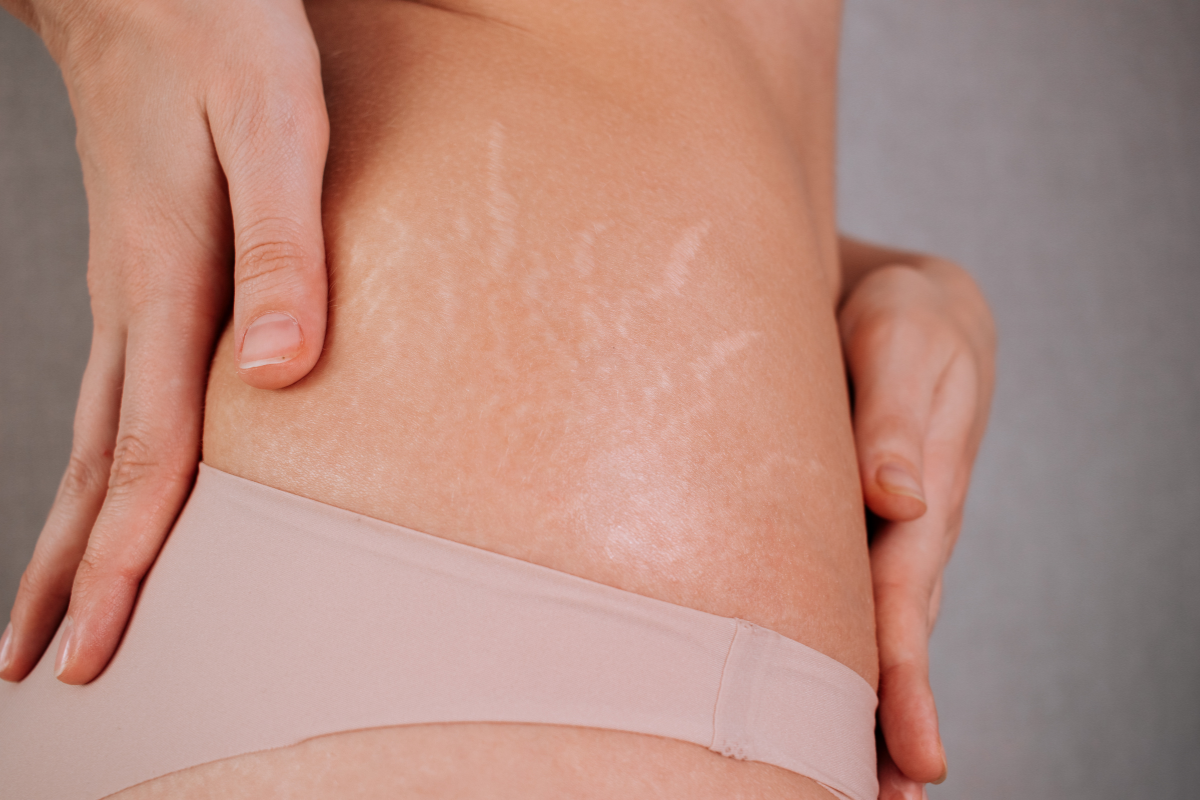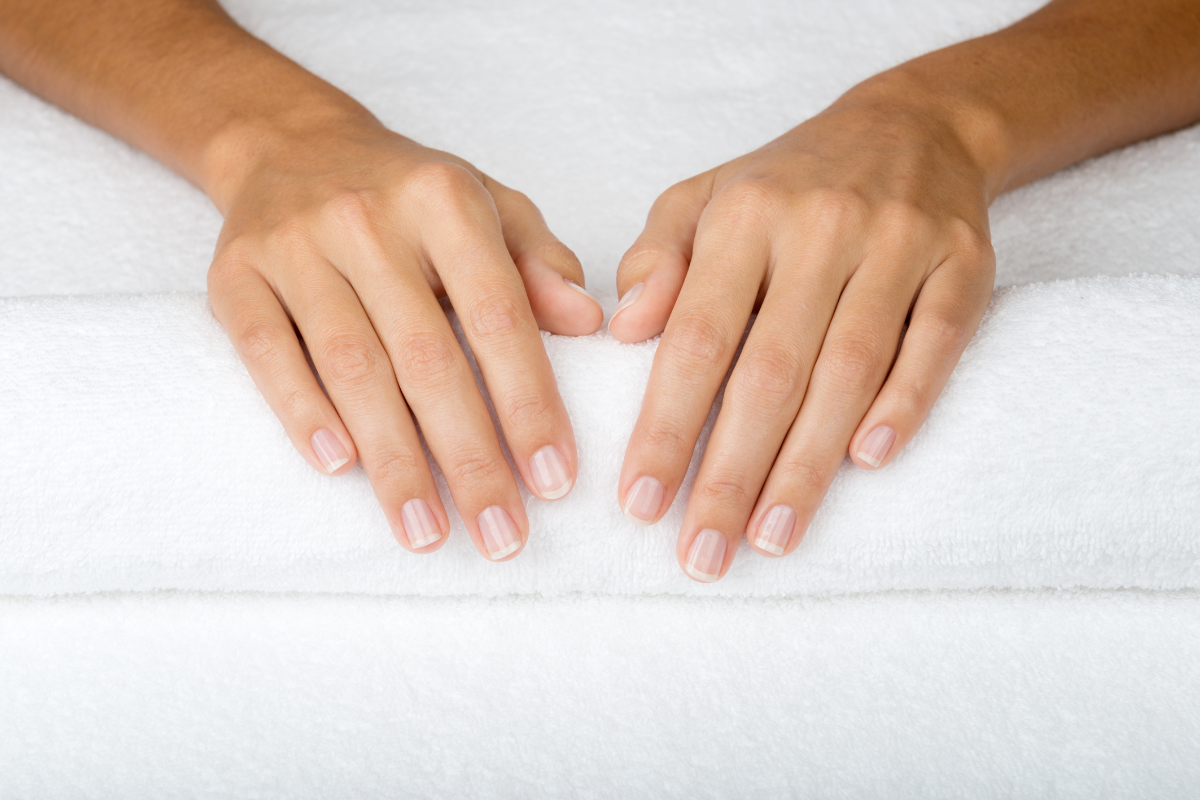Collagen & stretch marks

Collagen & stretch marks
Collagen is a powerful anti-aging food supplement that can help reduce the appearance of stretch marks and improve the appearance of existing stretch marks in the skin. Anti-Stretch Collagen is a super ingredient and a powerful way to keep stretch marks at bay. In addition to helping to reduce the effects and signs of aging in the skin, collagen can also have a marked impact on the reduction of stretch marks that have already appeared in the skin.
Over time, both the environment and aging reduce your body's ability to produce collagen, and also elastin, which can lead to skin that stretches more easily.
Hyaluronic acid, silicon, vitamin C, keratin , zinc, vitamin B9 (folic acid), vitamin B12, biotin (B7) and vitamin D are also important nutrients that counteract stretch marks.
What is the best dietary supplement for stretch marks?
COLLAGEN - SKIN & HAIR COMPLEX™ + KERATIN - SKIN & HAIR BOOSTER™ is a package of dietary supplements containing collagen, keratin, silicon, vitamin C and hyaluronic acid and is specially formulated to promote healthy, stretch-free skin.
Which vitamins and minerals counteract thin skin that cracks so that stretch marks form in the skin?
Vitamin D, biotin and vitamin C contribute, together with the mineral zinc, to the breaking of the skin so that a break is formed in the skin. And combining these vitamins and minerals with a collagen supplement and keratin for the skin will go a long way towards counteracting visible stretch marks and maintaining elastic skin.
Why do you get stretch marks in the skin?
Although our skin is flexible and elastic, it cannot withstand extreme stretching. If the skin is stretched too much, the connective tissue and fibers in the dermis are damaged. This damage to the dermis, or the second layer of skin, leads to scarring, which normally appears as purple, red lines or white streaks in the skin. These stretch marks are associated with hormonal changes, pregnancy, weight gain and increased muscle mass. These unwanted marks are usually found on the thighs, hips, buttocks, upper arms, lower back, stomach or breasts.
How are collagen and stretch marks related?
Stretch marks form in the middle layer of the skin, which is called the dermis and is formed by damaged collagen.
What are stretch marks in the skin?
The term "stretch marks" defines the rapid growth and adaptation of "overstretched" skin. Stretch marks are extremely common and almost everyone has stretch marks in their skin, and they are technically classified as a type of scar.
Their medical term is "striae" and are most common during puberty and pregnancy, while they also occur during weight gain and muscle gain. Stretch marks form in the middle layer of the skin, which is called the dermis and is formed by damaged collagen.
This breaking of collagen and elastin fibers can leave a permanent mark on the surface of the epidermis, which develops into what we call a stretch mark.
How does a break in the skin form?
Inside the dermis are dense and densely arranged collagen bundles. As the skin begins to stretch, these normally tight collagen bundles begin to separate. Because the skin stretches so quickly, the collagen bundles become disorganized and messy and fail to re-bundle, resulting in visible marks in the skin. The tangled collagen bundles appear as a groove or a gentle indentation in the skin is what makes it look like a break in the skin.
This is a type of mild inflammatory response, as the collagen and tissues react to the rapid growth, resulting in the fresh stretch marks appearing "inflamed" with a red, purple, maroon or dark brown color over time.
When inflamed, they may initially appear slightly raised and itchy. However, the red color does not last, and it is now especially important for the body to get as much nutrients as possible to rebuild collagen and elastin. Although stretch marks are technically a "scar".
Why do some people get stretch marks more easily?
There have been studies that show that the drastic changes in estrogen levels that occur during puberty, pregnancy and menopause can make the skin more susceptible to damage. This "damage" results in reduced collagen and production levels, leading to thinner, less elastic skin that can be prone to stretch marks.
Genetics also play a role. If the two people who gave you your genetic predispositions were prone to stretch marks, you are more likely to get them too.
Can keratin and collagen prevent stretch marks?
Strengthen your collagen as much as possible. Collagen, keratin and amino acids are the protein building blocks of the dermis and epidermis - in your skin. Just like eating protein every day, your skin needs to be fed the right nutrients to keep it healthy and strong. Vitamin C is also important for increasing collagen production.
Is biotin an important vitamin for keratin and its effect on stretch marks?
Biotin helps your body metabolize the amino acids needed to build keratin. Cells in the body called keratinocytes produce keratin which is a protective layer for the skin, making it flexible and firm, just like elastin or collagen - all these substances help to counteract cellulite.
Why is it important to strengthen your collagen to prevent the skin from breaking?
Strengthen your collagen as much as possible. Collagen, keratin and amino acids are the protein building blocks of the dermis and epidermis. Just like eating protein every day, your skin needs to be fed the right nutrients. Consume a smoothie with collagen peptides every day along with vitamins and minerals. so you prevent stretch marks. Vitamin C is the main building block for increasing collagen production.
How can collagen counteract stretch marks?
Collagen is a powerful anti-aging tool that can help reduce the appearance of stretch marks and improve the appearance of existing stretch marks.
Collagen can fight stretch marks, and by consuming this super ingredient, you can keep stretch marks at bay. In addition to helping to reduce the effects and signs of aging, collagen can also have a marked impact on reducing stretch marks in the skin.
Why is collagen important for elastic skin?
Collagen is a type of naturally occurring protein that works in the same way as a glue in the skin, joints and connective tissue. Collagen makes up a third of the total protein in the body. Collagen comes in over a dozen different types, with each type playing a critical role in the body's natural processes, including healthy joints, skin elasticity, and healthy bones to name a few.
As we age, our bodies begin to slow down their natural collagen production (starting at age 25). A healthy diet can play a crucial role in continuing to increase the production of natural collagen.
How does collagen affect stretch marks in the skin?
Since stretch marks are caused by the skin being stretched, resulting in both red and white stretch marks, collagen can help counteract the appearance of skin tearing.
Red colored stretch marks are often easier to treat. White stretch marks are older and are more difficult to treat due to their age.
It's no secret that getting rid of stretch marks is difficult. However, there are ways collagen can help minimize their appearance.
By making sure you're getting enough collagen to support your natural production, you can reduce the likelihood of stretch marks occurring in the first place. A healthy, balanced diet that is rich in antioxidants and that includes a collagen supplement can help prevent stretch marks.
Does lack of zinc cause stretch marks in the skin?
You may be more prone to stretch marks if you are deficient in nutrients such as vitamin C, vitamin D, zinc and protein. Eating foods or supplements that contain these nutrients can reduce the risk of developing stretch marks.
Why is vitamin C important to prevent the skin from breaking?
Vitamin C is important for helping your skin form collagen. Collagen keeps your skin strong and elastic, and reduces the appearance of wrinkles. Having strong and elastic skin is important to prevent stretch marks in the skin.
Can B vitamins such as folic acid and vitamin B12 prevent stretch marks in the skin?
B vitamins such as folic acid (vitamin B9) and vitami
Folic acid contributes to skin hydration and reduces stretch marks in your skin by maintaining adequate collagen production in the body.
Vitamin B12 is essential for your skin health as it plays a role in cell reproduction and therefore the renewal of your skin, a skin without stretch marks. Vitamin B12 helps increase collagen production and improves cell turnover.
Can a lack of vitamin D affect stretch marks?
Low levels of vitamin D may increase the incidence of stretch marks according to some studies. The results of the studies suggest that maintaining healthy levels of vitamin D can reduce the risk of stretch marks.
Is vitamin D important for skin elasticity?
Vitamin D helps strengthen elastin and maintain overall skin health. Having an adequate level of vitamin D helps increase the elasticity of your skin, stimulates collagen production and improves the skin's radiance. Connective tissue is made up of collagen and elastin. Collagen makes connective tissue strong and durable, while elastin makes it elastic. Collagen is the most common protein in humans and is mainly found in skin, bones, tendons, cartilage and blood vessel walls.
Why is silicon important to prevent stretch marks in the skin?
Silicon is an important trace element and is therefore fundamental to our health and well-being. Silicon is an important component of elastin and collagen - which help maintain the elasticity of the skin and contribute to elastic skin. Collagen maintains the elasticity of your skin and thus reduces the risk of stretch marks when the body is exposed to rapid growth or weight changes. Collagen plays a crucial role in keeping the connective tissue in good condition, and achieves a regenerative effect that helps keep the skin youthful and resilient.
- Tags: Hud/Skin Kollagen/Collagen







